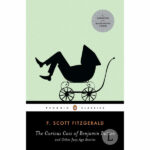Notes of a Dirty Old Man, a collection of columns written by Charles Bukowski and published in 1969, is a provocative and unapologetically honest exploration of the darker corners of human experience. The book compiles a series of articles that Bukowski originally wrote for the underground newspaper Open City between 1967 and 1969, showcasing the author’s raw and gritty literary style, as well as his unique insights into the human condition.
BOOK INFO
version: CLASSIC, EBOOK, AUDIOBOOK
number of pages: 200
literary movement: BEAT GENERATION
literary genre: AUTOBIOGRAPHY, SHORT STORY
1st edition: 1969
years of writing: 1967 - 1969
SUMMARY
Set against the backdrop of postwar urban America, Notes of a Dirty Old Man delves into the lives of society’s outcasts and fringe-dwellers, from alcoholics and addicts to prostitutes and the unemployed. The collection captures the struggles, pain, and fleeting moments of beauty that permeate the lives of these marginalized individuals, offering readers a glimpse into a world that is often overlooked or ignored.
Bukowski’s writing in Notes of a Dirty Old Man is characterized by its unfiltered observations and brutal honesty. The author does not shy away from depicting the harsh realities of his subjects’ lives, nor does he attempt to sugarcoat their flaws and weaknesses. Instead, he embraces the raw humanity of their experiences, celebrating the resilience and authenticity that lies beneath their hardships.
The columns in Notes of a Dirty Old Man cover a wide range of topics and themes, from tales of drunken debauchery and sexual escapades to introspective musings on the nature of existence and the human spirit. Throughout the collection, Bukowski’s distinctive voice and perspective shine through, providing a unique lens through which to view the world.
One of the key aspects of Notes of a Dirty Old Man is its examination of the relationship between art and suffering. Bukowski, who was no stranger to personal turmoil and adversity, argues that pain and hardship can serve as powerful catalysts for creativity and self-expression. The columns in the collection often touch on the author’s own experiences and artistic journey, offering a candid and intimate portrait of the man behind the words.
MAIN CHARACTERS
Notes of a Dirty Old Man is a collection of columns rather than a novel with a traditional narrative structure. As such, there aren’t main characters in the same sense as you would find in a novel. However, Charles Bukowski himself can be considered the central figure of the collection, as he is the author and narrator of the columns, sharing his experiences, observations, and thoughts throughout.
Charles Bukowski
As the author and narrator, Bukowski serves as the central figure in Notes of a Dirty Old Man. He offers unfiltered observations and candid insights into the lives of marginalized individuals, as well as his own personal experiences and artistic journey. Through his writing, he provides a unique perspective on the darker aspects of human existence and the complexities of the human spirit. His often autobiographical writing style creates a sense of intimacy and authenticity that permeates the collection.
While there are no other recurring characters in the traditional sense, the collection does feature a variety of individuals who appear in different columns, representing various aspects of the fringe society Bukowski writes about. These include:
- Alcoholics and addicts who struggle with their vices and the challenges they bring to their lives
- Prostitutes who share their stories and experiences with the author
- Unemployed and downtrodden individuals navigating the hardships of life on the fringes of society
- Artists and other creative figures who, like Bukowski, explore the relationship between suffering and creativity
The characters that populate Bukowski’s columns serve to illustrate the themes and experiences he explores, providing readers with a glimpse into the lives of society’s outcasts and the harsh realities they face.
To be young is the only religion.
CHARLES BUKOWSKI
TOP 10 POINTS
- Raw and Honest Writing: Notes of a Dirty Old Man showcases Charles Bukowski’s unapologetically honest and gritty literary style, characterized by unfiltered observations and brutal depictions of life’s darker aspects.
- Marginalized Individuals: The collection delves into the lives of society’s outcasts and fringe-dwellers, such as alcoholics, addicts, prostitutes, and the unemployed, capturing their struggles, pain, and resilience.
- Urban American Backdrop: Set in postwar urban America, the book offers a unique perspective on the experiences and challenges faced by individuals living on the fringes of society during that period.
- Exploration of Suffering: Notes of a Dirty Old Man examines the relationship between art and suffering, arguing that pain and hardship can serve as powerful catalysts for creativity and self-expression.
- Bukowski’s Personal Experiences: The columns in the collection often touch on the author’s own experiences and artistic journey, providing a candid and intimate portrait of Charles Bukowski as both a writer and a human being.
- Range of Topics and Themes: The book covers a wide range of topics, from tales of drunken debauchery and sexual escapades to introspective musings on the nature of existence and the human spirit.
- Celebration of Authenticity: By embracing the raw humanity of his subjects’ experiences, Bukowski celebrates the resilience and authenticity that lies beneath their hardships.
- Impact on American Literature: Notes of a Dirty Old Man has had a significant influence on American literature, contributing to the emergence of the confessional and transgressive literary genres.
- Cult Status: The collection has achieved cult status over the years, with readers drawn to Bukowski’s unvarnished portrayal of life on the margins of society and his fearless exploration of taboo subjects.
- Enduring Appeal: Despite its controversial content and themes, Notes of a Dirty Old Man remains a popular and enduring work, appreciated for its honest and raw portrayal of the human experience and its insights into the complexities of the human spirit.
In conclusion, Notes of a Dirty Old Man is a bold and unflinching exploration of the darker aspects of human experience, as seen through the eyes of one of America’s most iconic and controversial literary figures. By shedding light on the struggles, pain, and resilience of society’s outcasts, the collection provides a powerful and enduring testament to the complexity and beauty of the human spirit.
ABOUT WRITER

Charles Bukowski was a German-American poet, novelist, and short story writer who is considered one of the most important and influential writers of the 20th century. He was born in Andernach, Germany on August 16, 1920, and immigrated to the United States with his family when he was two years old. The family settled in Los Angeles, where Bukowski grew up and spent most of his life.



